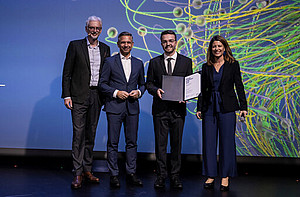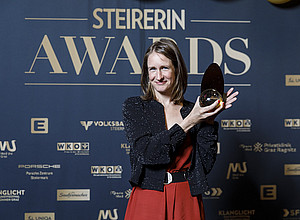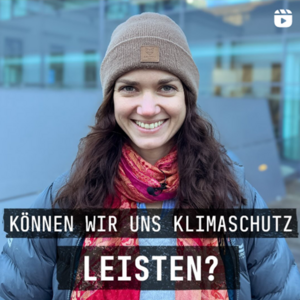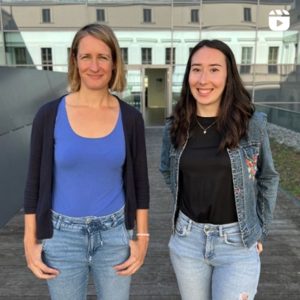Klimaschutz stärkt Wettbewerbsfähigkeit
Am 8. Oktober 2025 wurde der erstmals verliehene Roland-Langthaler-Preis an Matthias Salomon überreicht. Der von Österreichs Energie und VERBUND initiierte Preis würdigt herausragende Lösungen im Energiebereich, die Fairness, Verantwortung und Weitblick vereinen. Die Arbeit basiert auf wissenschaftlichen Erkenntnissen und praxisnahen Ansätzen, die zeigen, wie Klimaschutz, Wettbewerbsfähigkeit und Energieunabhängigkeit Hand in Hand gehen können.


Klimaforschung mit Haltung
Die Physikerin Julia Danzer wurde mit dem STEIRERIN AWARD 2025 in der Kategorie „Wissenschaft und Technik“ ausgezeichnet – wir gratulieren herzlich!
If we want to slow down climate change, CO2 emissions must be drastically reduced. This requires a radical reorientation of the economy and society. Together with her team, Ilona M. Otto is researching which measures are suitable for rapidly bringing about sustainable change. “Among other things, we need more efficient climate policy instruments that target the richest. After all, 0.5 percent of the world's richest people cause more CO2 emissions than 50 percent of the poorest,” says the sociologist and resource economist. This is not so much about the relationship between the Global North and South, but about social groups on all continents who have enormous wealth, similar lifestyles and a great deal of power to change things.
Never underestimate your potential for change!
Jordan Everall conducts research at the University of Graz on social tipping points and rapid social transformation processes that trigger drastic changes in individual, collective and institutional behavior. Find out more!
In many areas, climate-friendly measures already make more economic sense than conventional measures.
Nina Knittel deals with the costs of climate change and the economic effects of climate change adaptation. A particular focus is often on the resilience of public budgets and how vulnerable economies are to climate risks in trading partners. Find out more!
The CarbonTracer is a service for the reliable calculation and realistic mapping of greenhouse gas emissions in the mobility sector. In this three-part video series, Julia Danzer and Stefanie Hölbling - two of the scientists behind the CarbonTracer - explain what the tool can do and how it works:


